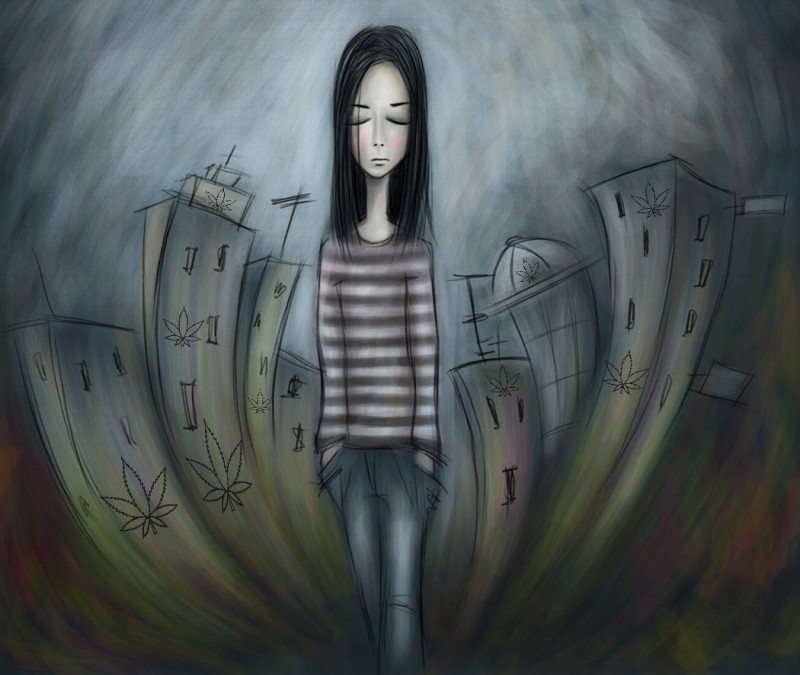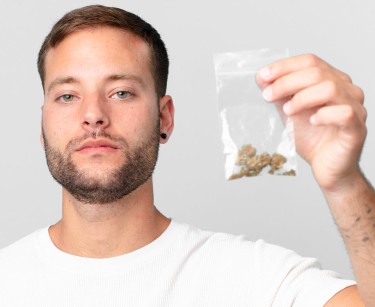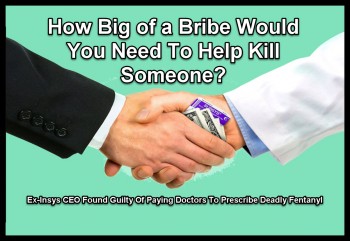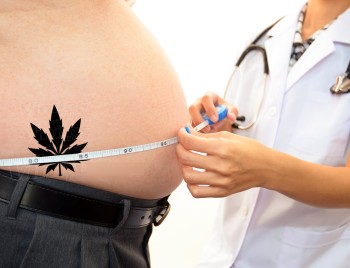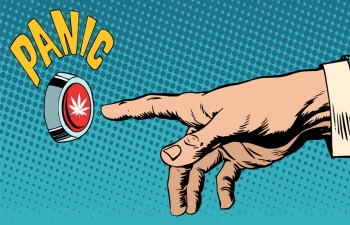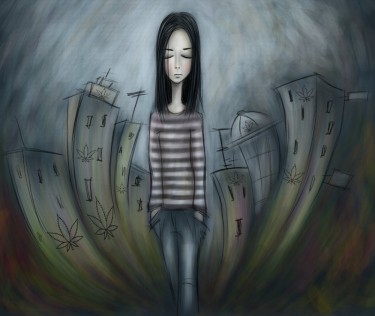
A recent study published in the Journal of Affective Disorders attempts to link rising depression rates among young adults to increased cannabis use, insinuating that legalization is enabling problematic self-medication. However, the authors display shallow reasoning and fail to consider the broader context of why depression is spiking among youth. Their goal seems to be fueling anti-cannabis propaganda, not exploring root causes.
In today’s article it is not my attempt to dissect the study, but to talk about other reasons – besides cannabis, that could be linked to increase depression among young adults.
The study notes increased depression pre-pandemic, especially among young adults. But it hastily credits this to "displacement of in-person social interaction with social media and digital technologies." While social media overuse can be harmful, the issues depressing youth run far deeper. Not to say it doesn’t play a significant factor in my opinion.
In fact, when you take the dates in the study and correlate with the rise of Social Media – one can argue that the rise in popularity of social media platforms robbed them from the ability to interact with others on a more personal level. Think about it, kids pre-social media were forced to play with each other, have more social interaction – as a result, they moved about more, they were not as depressed.
However, with the rise of social media, kids became more isolated…and in fact, if we take a look at the past and consider the social nature of the human being – there might be something there!
A Fate Worse Than Death
In ancient times, exile was society's harshest punishment, reserved for only the most heinous offenses. Cut off from one's people and home, forced to wander alone in the wilderness - this isolated purgatory was considered a fearful fate worse than execution.
Yet today, we increasingly self-impose an emotional exile of sorts via social media. Our virtual personas project enviable lives, edited to perfection. But the comparison breeds anxiety, alienation, even self-loathing. We've never been so "connected" yet feel more and more alone.
The irony is crushing – with limitless ability to contact others instantaneously, we've forgotten how to meaningfully interact. Social muscles atrophy as we hide behind filtered avatars, chased by metrics of validation.
Loneliness is reaching epidemic scales alongside screen addiction. We yearn for what technology promises yet erodes. For all its conveniences, has progress only estranged us from our true needs - human intimacy, nature, stillness?
Think of the most "successful" influencers who appear to "have it all" online. Their fans number in the millions. Yet under the sheen, many remain deeply unfulfilled, some even taking their own lives.
Is this the disconnected dystopia we're building - palm trees and paradise filtered over inner wastelands? Perhaps exile of the soul is a fate worse than death.
We must relearn that screens supplement but cannot replace embodied living. The digital sphere offers no balm for hearts starving to belong. Its perfection reflects hollowly in the shadow of life's beautiful wreckage.
Recovery starts by daring to disconnect regularly, feel uncomfortable offline, let authenticity rise unfiltered. With practice, we remember the divine standard dwells within. Comparison is violence against one's intrinsic divinity.
Only embracing vulnerability cultivates community. The real connects through cracked masks. I cannot know you without revealing my own sacred wounds as well.
We suffer most separating ourselves - from nature, each other, our wholeness. We cannot ignore the effects of social media on the young mind – who only knows this form of mass social communication. However, it’s not solely the fault of social media.
Crises Fatigue & the never ending cycle of victimhood!
Consider the state of society that millennials entered adulthood into. Endless war, catastrophic climate change, corrupt leaders, unchecked corporate power, and crumbling community. The very foundations of stability and opportunity that older generations benefited from are disintegrating.
Of course chronic stress, hopelessness, and depression result from witnessing our society's core pillars collapse in real time. Youth are told to work hard, go to college, get married, when current conditions make achieving these milestones increasingly difficult, if not impossible.
Social media does exacerbate isolation and jealousy. But excessive comparison to unrealistic standards is a symptom of a sick culture, not the cause. Young adults are depressed because the world they inherited is objectively bleaker and more desperate than the one their parents enjoyed.
Next, the researchers acknowledge increased cannabis access from legalization, then insinuate this enables problematic "self-medication." But they ignore how prohibition itself creates conditions prime for self-medication like unsafe products and lack of guidance.
It's true that more youth now perceive cannabis as beneficial. But ending prohibition demystifies cannabis through education, reasonable regulations, and product standards. The plant's risks and rewards can finally be discussed honestly. If anything, legalization discourages escapist abuse by fostering healthier relationships with the plant.
We must also consider context when citing increased prevalence rates. As stigma declines, more feel comfortable admitting use on surveys. Legalization simply reveals previously existing demand. And "increased prevalence" does not automatically mean rampant abuse - most jurisdictions report stable moderation even as overall consumer numbers rise.
If the researchers' concern is youth "self-medicating" without medical supervision, then the solution is obvious - expand professional cannabis therapy access. Legalization is a first step, but barriers around studying and prescribing cannabis remain. Patients deserve clinician guidance in using it responsibly. But for patients.
We actually need to update what “typical consumption” looks like. In previous articles I spoke about how the “scientific threshold for problematic consumption” is far too conservative. The fact of the matter is that when cannabis users have tolerance, they begin to balance their behavior accordingly. They become functional.
Of course, not all people – but certainly the majority of cannabis users are not “problem users” and the majority of them aren’t depressed. The point being that the models being used are not accurate in terms of market expression.
How can we have a fair assessment if the metrics of measurement are not set in accordance to market standards?
The old “correlation causation debate”
Finally, correlation does not equal causation. The authors provide no evidence directly linking increased depression to cannabis use. They simply observe both conditions rising and insinuate connection. But a third factor like society's downward trajectory better explains these trends.
Does cannabis hold potential to help depression? Absolutely, but careful dosing and mindset are key. Vilifying it without data ignores potential upsides. Demonizing cannabis won't make the external drivers of desperation disappear.
The stark truth is that unprecedented economic uncertainty, political corruption, environmental catastrophe, and the threat of violence weigh heavily on our youngest generations' psyches. Their anxiety and despair do not arise from nowhere.
These factors must be acknowledged first and foremost when examining rising mental health challenges. Cannabis is merely one of many coping tools, with proper use determined individually. But a broken system shapes the conditions where coping becomes necessary.
Seeking scapegoats like social media or cannabis glosses over the need for radical societal reforms restoring opportunity, justice and stability. Young adults are sounding alarm bells we desperately need to hear. Exploring this mental health crisis demands nuance, compassion and open minds, not ideological finger pointing. Until core issues are addressed, band-aids will do little. Our times call for deep reflection and bold ideas. Will we rise to meet this historic challenge?
Common Sense
This isn’t to say that cannabis is harmless. Some people may have a problem with cannabis, but painting with broad brushes isn’t helping anyone. In 2019, there were riots on the streets of Hong Kong, companies like Pfizer were paying record fines for corruption, and people everywhere was fed up with the way that “leadership” was running the world.
We’re in a point in time where we’re undergoing a major societal shift. The fact of the matter is that the youth have no idea on what to expect – their leaders are pieces of shit, swindlers who sold them out before they were born.
However, all of this will spark a new wave of thinkers and doers. The dust will settle, a new dawn will rise. Cannabis will reintegrate into society no matter how hard they try to vilify it.

